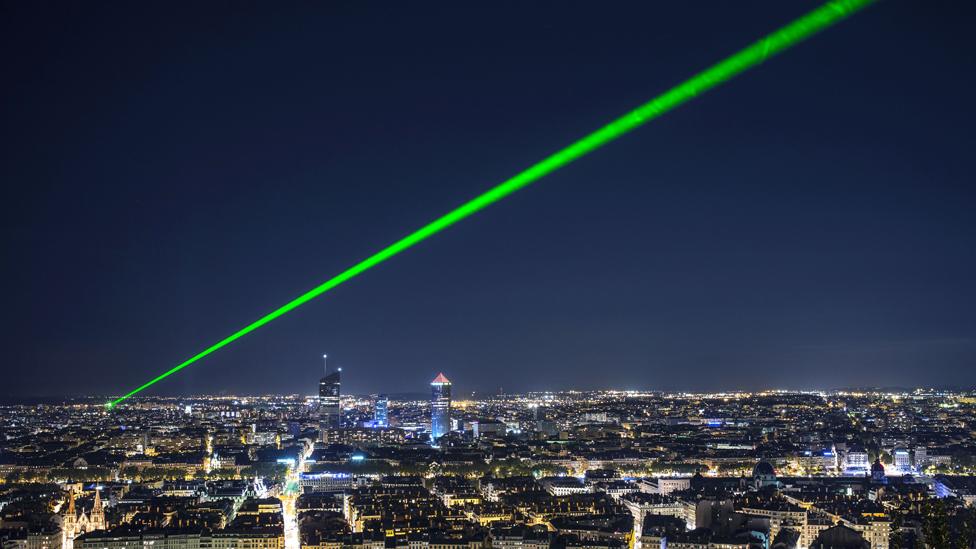Government to consider laser pen licence after attack rise
- Published
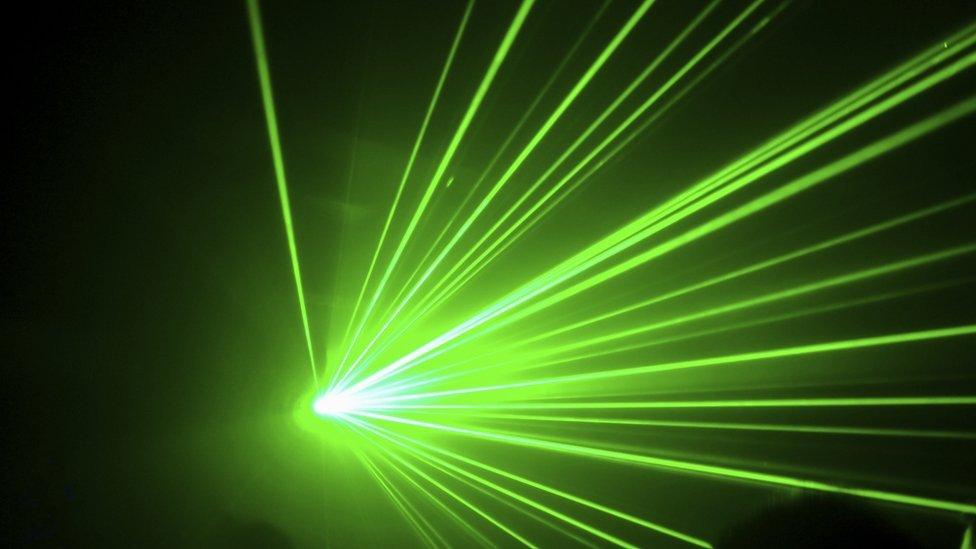
Buying powerful laser pens could require a licence in future, the government has said, amid concerns over the number of attacks on aircraft.
Ministers say they could also bring in new measures to license retailers and restrict advertising after warnings about the risks to pilots and planes.
The government said it wanted to find "the best way to protect the public".
Last year, 1,258 incidents of lasers being shone at aircraft were recorded by the UK's Civil Aviation Authority.
This week, Spanish police said a British man and his son had pointed a laser at a plane over the Costa del Sol.
Earlier this year, the government said it would introduce a new law meaning people who deliberately shone lasers at aircraft could face larger fines or even a jail sentence.
However, the proposal was dropped from the government's legislative programme after June's general election.
Jonny Marshall: "There was this huge blur in my eye"
The Department for Business, Energy and Industrial Strategy has now launched an eight-week consultation on the issue.
Business Minister Margot James said: "Public safety is of the utmost importance and we must look carefully to make sure regulations are keeping up with the increased use of these devices."
She added: "Used irresponsibly or maliciously, these products can and do wreak havoc and harm others, with potentially catastrophic consequences.
"That's why we want to hear from business groups, retailers and consumers about the best way to protect the public from this kind of dangerous behaviour and improve safety."
Licensing schemes already exist in countries such as Australia, Canada and the US.
In the UK, shining lasers at aircraft can incur a fine of up to £2,500.

'Effects can last for hours'
Former pilot Chris Hammond, now a spokesman for the British Airline Pilots Association (BALPA), had a laser shone at him while he was flying.
He told BBC News: "It's very disconcerting. Most of the [incidents] are at night - and it's distracting.
"We (pilots) look outside all the time. If we see another light, we're attracted to looking at it straight away because it might be a plane. And it's not, it's a laser.
"But by the time you've seen it, it's too late. It's got your eye and you are possibly blinded for minutes, if not hours, afterwards.
"They are very strong, some of these lasers, and that's a big problem at the moment. The effects of that can last for a long time."

Spanish pilots 'dazzled'
Brian Strutton, general secretary of BALPA, said shining lasers into the eyes of a pilot at a critical stage of a flight "has the potential to cause a crash and loss of life".
"There is also a growing concern that, as the power of available lasers increases, the possibility of permanent damage being caused to pilots' and passengers' eyes increases," he added.
Three pilots reported being dazzled during the incident in Spain.
If found guilty, the two British holidaymakers could face a fine ranging from €30,001 (£27,280; $35,425) to €600,000 for endangering flight safety.
Simon Kelly, of the Royal College of Ophthalmologists, said he has seen people with permanent eye damage as a result of laser pens.
He said: "In the most severe cases a centre part of the retina, known as the macular, can be burned and a hole can be there which may well be permanent.
"Obviously there can be minor issues where the eye recovers very well and the eyesight is not damaged, but in the most severe case it is possible to blind one's self with a laser pointer and I have seen this happen in a youngster."


- Published11 August 2017
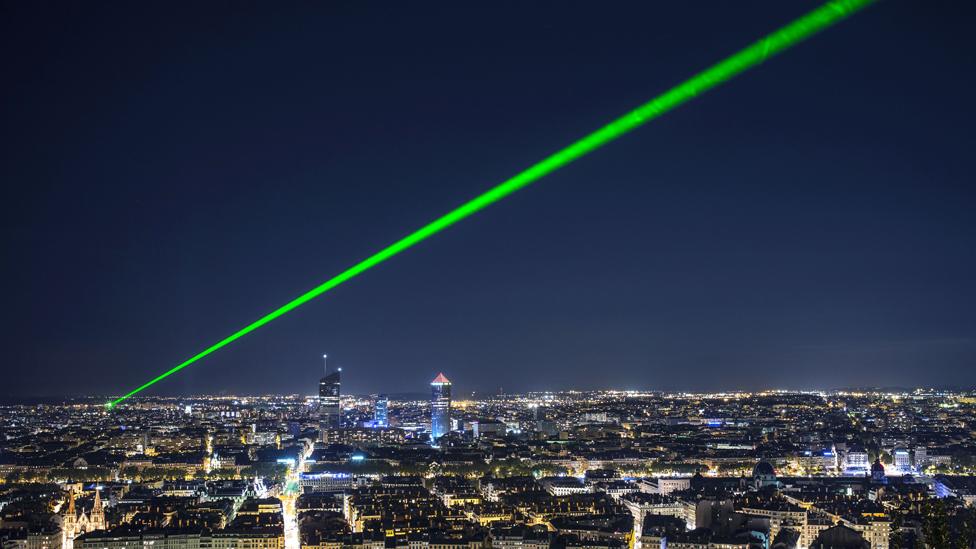
- Published27 February 2017
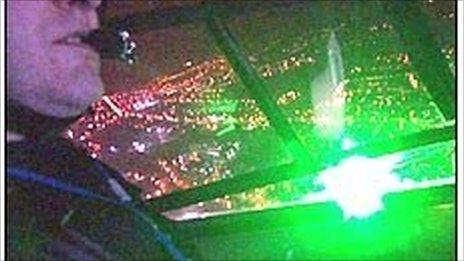
- Published15 February 2016
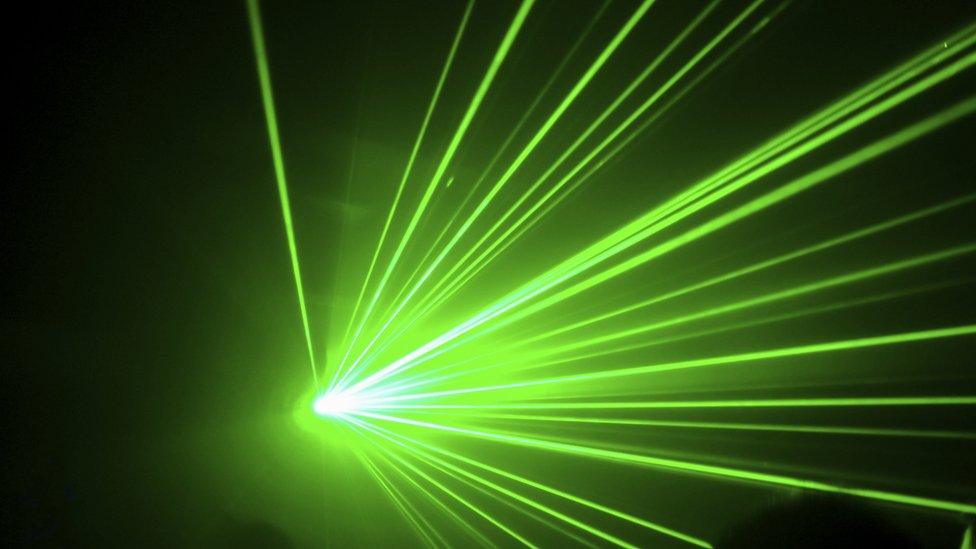
- Published15 February 2016
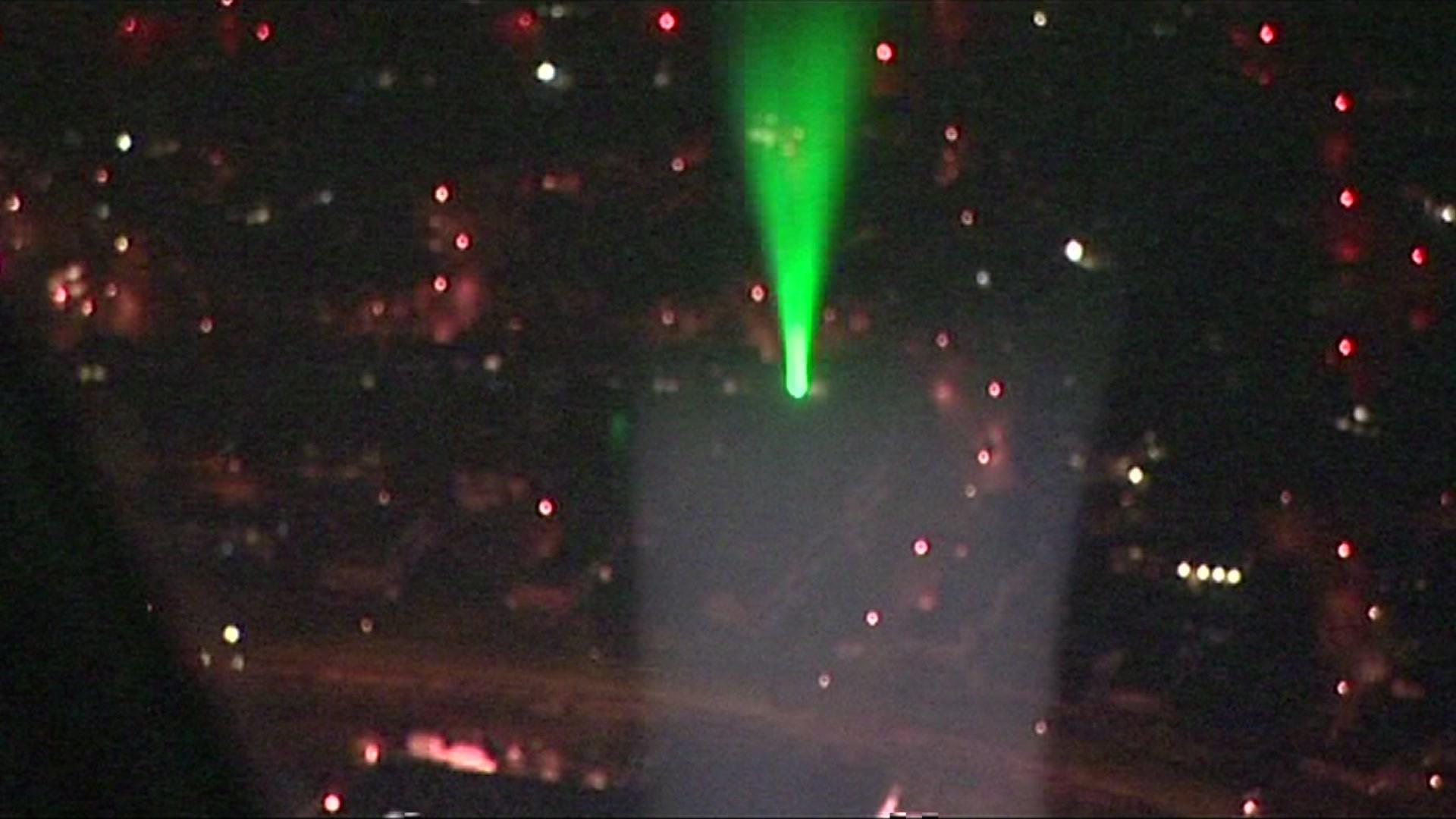
- Published24 November 2015
